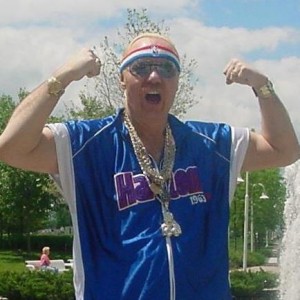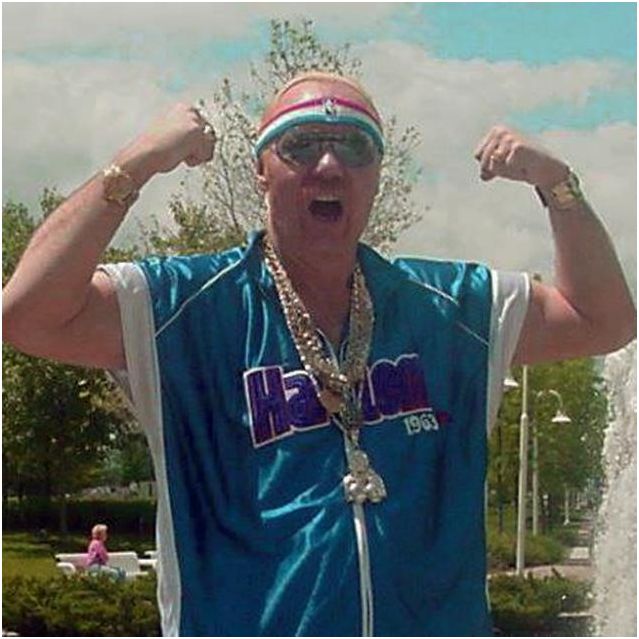(Long-time boxing matchmaker, promoter, booking agent Johnny Bos passed away last weekend in Florida at the age of 61. J Russell Peltz, a member of the International Boxing Hall of Fame, recalls his association with the man known as The Wizard of Bos).
The Wizard Is Gone
Johnny Bos forgot more about boxing than most of today’s so-called experts ever knew, but his career in the sport he loved had been a Shakespearean tragedy for years. He could predict the outcome of most fights so long as one of his own guys was not involved. We called him Wizard—the Wizard of Bos.
I met him in 1969 outside what used to be called the Felt Forum on 8th Avenue between 31st and 33rd Streets. We were kids in love with boxing. Bos was 17 years old. I was 22. The Felt Forum was the 5,000-seat arena inside the larger Madison Square Garden and I’d take the train up there to watch the Friday Night Fights which Teddy Brenner and Harry Markson were staging to develop talent for the bigger arena. Today it is known as The Theatre at Madison Square Garden.
At the time, I was working on the sports desk at The Evening Bulletin in Philadelphia, located across the street from the 30th Street Train Station. In those days, Malcolm Flash Gordon and Bos were publishing Tonight’s Boxing Program, an un-licensed 10- or 12-page newsletter which served as the unofficial program for fights in New York City. Flash printed the newsletter on a mimeograph he bought with his Bar Mitzvah money. It was the hottest thing in boxing, a no-holds barred, tell-it-like-it-is publication which was a must read for everyone who loved or was connected to boxing.
Flash and Bos were two of a quartet of boxing groupies. The others who wrote for Tonight’s Boxing Program were Jack Obermayer, then 25, and Donald Majeski, then 17. At one Felt Forum card in 1969, the program included a 10- or 15-question boxing quiz with the winner getting his choice of a free one-year subscription to either Boxing Illustrated magazine or Tonight’s Boxing Program. I won the quiz, getting every answer correct, but someone complained that I should have been ineligible since I was a sportswriter. Flash said there were no restrictions on who could, or could not, enter and I chose Tonight’s Boxing Program as my prize and that started a lifelong relationship with the quartet.
In the 1970s, the four of them were a constant sight at my cards in Philadelphia. Flash was with me from the beginning, selling programs at my cards at the Blue Horizon, Arena and Spectrum, but he went AWOL sometime in the 1980s.
Obermayer became a lifelong boxing junkie and probably has seen, and reported on, more fight cards in more cities than any man alive. Majeski is an international booking agent with ties worldwide. He is a member of the nominating committee of the International Boxing Hall of Fame in Canastota, NY.
 Bos, real name Johnny Bosdal, became the go-to guy in New York and elsewhere up and down the East Coast, working as matchmaker for dozens of promoters, including Hall-of-Famer Mickey Duff in England and several others in Europe. He seemed out of place in boxing, a 6-foot-4 hip-hopper, about 240 pounds, with long blond hair. He wore clothes he must have bought at thrift shops when the Beatles were in vogue.
Bos, real name Johnny Bosdal, became the go-to guy in New York and elsewhere up and down the East Coast, working as matchmaker for dozens of promoters, including Hall-of-Famer Mickey Duff in England and several others in Europe. He seemed out of place in boxing, a 6-foot-4 hip-hopper, about 240 pounds, with long blond hair. He wore clothes he must have bought at thrift shops when the Beatles were in vogue.
In the 1980s, when I was promoting at the Sands Hotel & Casino in Atlantic City, Bos and I worked closely. He often reminded me how I kept him going financially—and health-wise–in those days. He’d reminisce about hanging out at the bar at the Sands on the 2d floor and feeding himself with the meal tickets we gave to the fighters who boxed there.
His knowledge of current-day fighters and of the greats and not-so-greats of the past was uncanny. He was an admitted alcohol and drug user and he’d usually stand in the back of the arenas on fight night, bee-bopping to music only he could hear.
Shortly after Prince Charles Williams knocked out Bobby Czyz to win the IBF light-heavyweight title in 1987 in Las Vegas, I got a phone call from Bos.
“That was the best job you ever did,” he said, “resurrecting a club fighter like Williams, who was going nowhere when you signed him, and taking him to the world title.”
Those were words of validation.
Bos never bothered with contracts and it cost him big money after developing several fighters who became world champions. Without his guidance, who knows if Billy Costello, Tracy Harris Patterson or Paulie Malignaggi would have made it to the big-time? He also delivered opponents for a couple of pretty good heavyweight prospects named Gerry Cooney and Mike Tyson. Bos was the brains behind Tyrone Booze, a mediocre talent who won the vacant WBO world cruiserweight title in 1992 with a 15-10 record.
When I was hired to make matches for ESPN in 1998, I paid Bos a weekly salary for advice.
His most beloved client was Joey Gamache, an over-achiever from Lewiston, ME, whom Bos maneuvered into winning the WBA world lightweight title in 1991. In 2000, seven years after Gamache had lost his title and six years after failing to regain it for the second time, Bos put Gamache in with a comebacking Arturo Gatti in a 10-rounder on the undercard of the Oscar De La Hoya vs. Derrell Coley main event at Madison Square Garden.
The official weights were 140 for Gamache, 140 ½ for Gatti. To the end, Bos swore Gatti never made the contracted weight and claimed the New York State Athletic commission failed to do anything about it and even went so far as to claim the commission aided and abetted Gatti at the weigh-in. The next night, Gatti, weighing 160 pounds, blitzed the then-145-pound Gamache in two rounds. Gamache claimed he suffered brain damage and was hospitalized for days. He never boxed again.
When Gamache sued the commission, it marked the end of Bos’ days as a major player in New York. In 2010, a judge finally ruled that the New York State Athletic Commission failed to properly weigh Gatti, but added that such failure did not cause Gamache’s career-ending knockout. Since that lawsuit was filed, Bos had been unable to do any kind of official matchmaking work in New York. Just a coincidence, I’m sure!
Bos permanently moved to Florida, found it hard to get decent work in boxing, and eventually had to sell his priceless boxing memorabilia collection, including autographs of many hard-to-find fighters from the early years of the 20th century, to pay his bills. He suffered from congestive heart failure and became bitter about the sport that was his life. I saw him for the first time in years—and the last time ever–at Angelo Dundee’s funeral in Florida in February, 2012. Seeing him brought back wild and whacky memories of years gone by.
When I called him last month, he told me that Malignaggi had recently sent him a check for $5,000.00, a generous act that went unnoticed.
“Things are pretty rough in boxing right now,” I told him.
“You have no idea how rough it is until you go looking through garbage cans for something to eat,” he said.
That conversation was a far cry from the one I remember we had in 1988, the night before my then-unbeaten welterweight, Hugh Buttons Kearney, was about to fight last-minute sub Jorge Maysonet on USA Network at the Blue Horizon. Bos had delivered Maysonet, a Puerto Rican living in New York, to fight Kearney at the last minute.
“Well, whaddya think, Wizard? I asked him on the phone the night before the match.
“Russell, you know exactly what is gonna happen,” he said. “Kearney’s gonna go out of there as soon as Maysonet hits him.”
It didn’t take long. Maysonet hit Kearney flush with a right hand, left hook combination 10 seconds into the fight. Kearney went down like a stiff board and the referee did not even bother to count.
# # #
